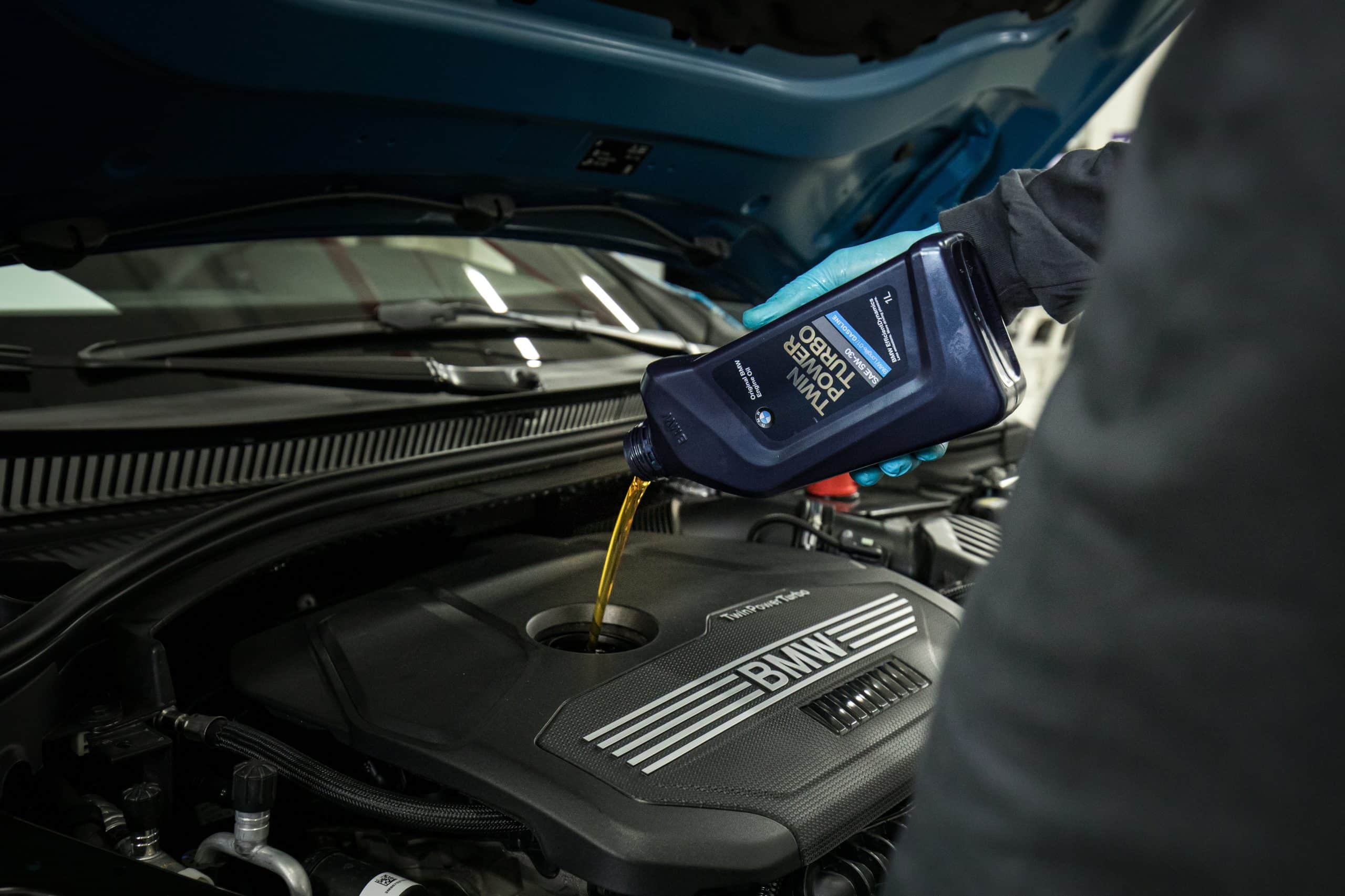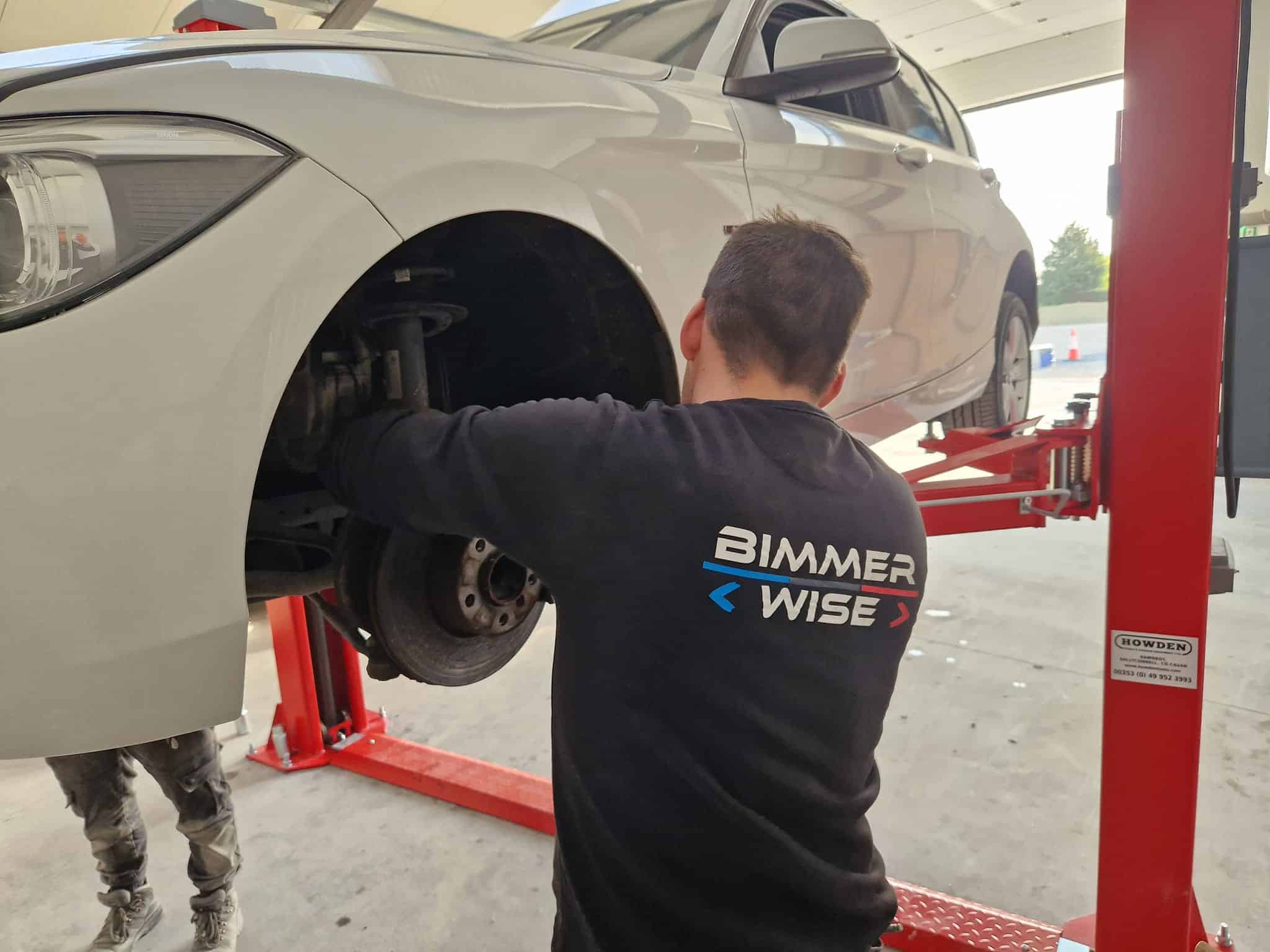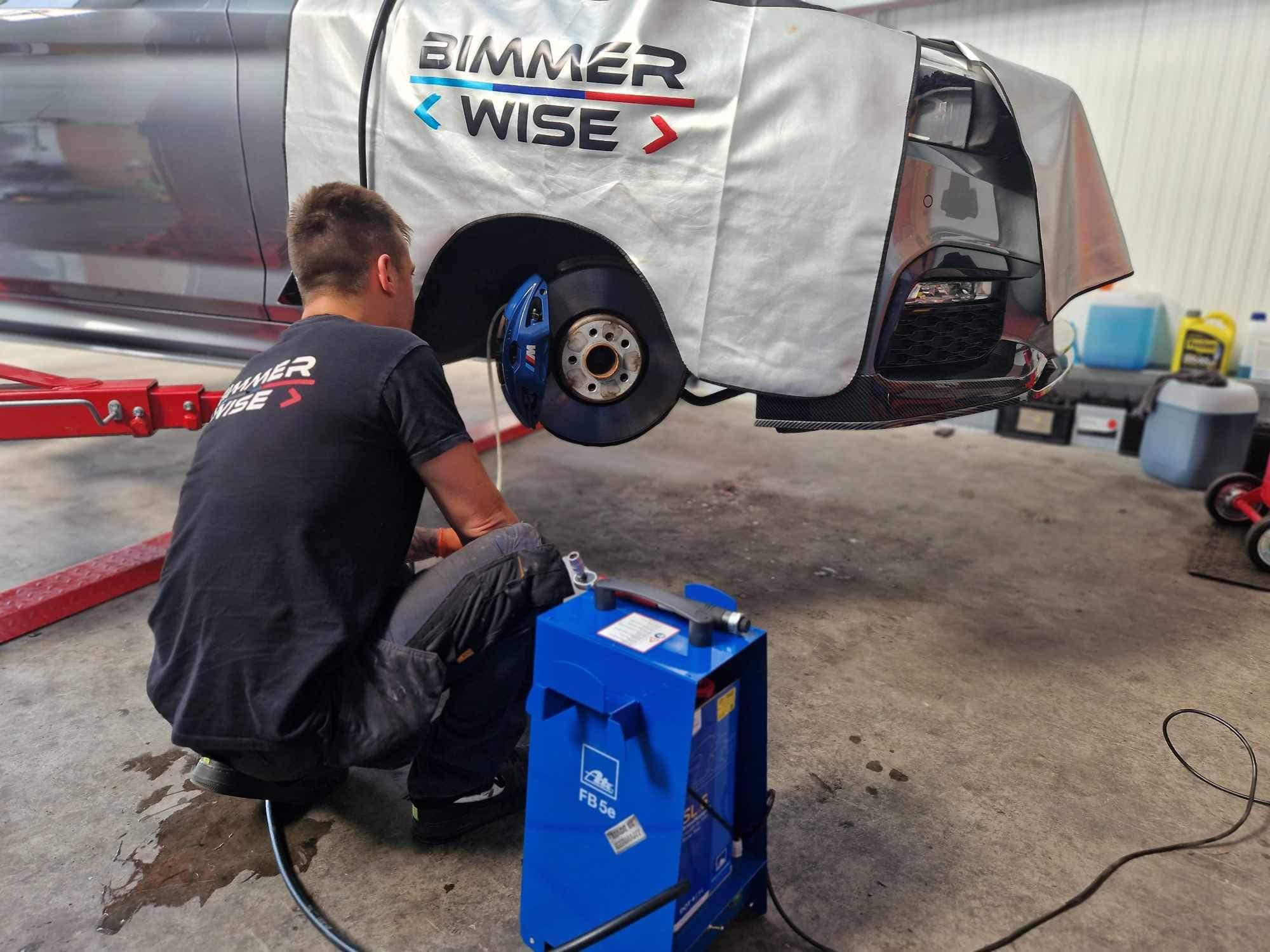



Restore your BMW diesel’s health & efficiency. Expert DPF & EGR diagnostics, cleaning & solutions in North County Dublin by Bimmerwise. NCT compliance assured.
Modern BMW diesel engines, popular in Ireland for performance and economy, use sophisticated DPF (Diesel Particulate Filter) and EGR (Exhaust Gas Recirculation) systems for emissions control. The DPF traps soot, while the EGR reduces NOx. However, certain driving patterns (frequent short trips in Dublin) can clog these systems, leading to reduced performance, increased fuel consumption, warning lights, and NCT failures.
At Bimmerwise, your dedicated BMW diesel specialist in North County Dublin, our Lusk workshop offers comprehensive DPF/EGR diagnostics, professional cleaning (on-car/off-car), and expert repair/replacement. We help keep your BMW diesel running cleanly, efficiently, and compliant with Irish environmental standards. At Bimmerwise, “We make BMWs better.”
Diagnosing and resolving BMW Diesel Particulate Filter (DPF) and Exhaust Gas Recirculation (EGR) issues requires in-depth knowledge, advanced diagnostics, and correct specialist techniques. Simply forcing regeneration is often temporary if underlying problems exist.
At Bimmerwise, our Lusk-based BMW diesel specialists are highly experienced with DPF/EGR challenges faced by Irish motorists. We use official BMW ISTA diagnostic tools to accurately assess DPF soot/ash loading, differential pressure, EGR valve operation, and related sensor data. Based on this, we offer tailored solutions:
We also address root causes of DPF blockage like faulty glow plugs, thermostats stuck open (common in Ireland’s cool climate, preventing regeneration), or leaking injectors, ensuring a long-lasting solution for your BMW diesel.






A clean, correctly functioning DPF/EGR system allows your BMW diesel to breathe properly, restoring lost power, responsiveness, and improving fuel consumption on Irish roads.

A functional DPF/EGR valve is critical for your BMW diesel to meet Ireland's stringent NCT emissions limits for particulate matter and NOx. Bimmerwise solutions help guarantee compliance.

Ignoring DPF/EGR blockages can lead to excessive backpressure/heat, potentially damaging the turbocharger, DPF element, or causing wider engine problems. Proactive cleaning prevents this.

Efficient DPF/EGR systems minimise your BMW diesel's environmental impact by significantly reducing particulate matter and NOx emissions, contributing to cleaner air in Dublin and Ireland.
DPF warning light illuminated on your BMW's dashboard.
"Check Engine" light (MIL) on, possibly with fault codes for DPF blockage (P242F, P2002) or EGR faults (P0401, P0404).
Reduced engine power, sluggishness, or "limp home mode" with restricted performance – common with DPF issues.
Significant, unexplained increase in diesel fuel consumption.
Engine's automatic DPF regeneration seems much more frequent than usual (fan running on after short trips, change in exhaust note).
Struggles to start, idles roughly, or emits excessive black smoke from the exhaust (DPF may be overwhelmed/bypassed).
Strong smell of diesel fumes, potentially indicating a leak or severe DPF blockage.



For all DPF and EGR system work on BMW dies BMW or OEM equivalent sensors (differential pressure, temperature, NOx) to ensure optimal system performance, longevity, and NCT compliance for Irish roadsels, Bimmerwise Dublin uses high-quality, EU Type-Approved DPF replacement units if cleaning is not viable.
Diesel Particulate Filters (DPFs), EGR valves, EGR coolers, D, OEM specification EGR valves and coolers (e.g., from Pierburg, Wahler), reputable DPF cleaning chemicalPF differential pressure sensors, exhaust gas temperature sensors, NOx sensors, DPF cleaning fluids, intake manifold gaskets.
Official BMW ISTA/D for full diesel engine management diagnostics: reading DPF soot and ash mass values, initiating static/dynamic DPF regeneration, testing EGR valve actuation and position feedback, monitoring all relevant exhaust temperature and pressure sensors, and resetting DPF/EGR learned adaptations after service. Specialist DPF cleaning equipment (on-car injection systems or access to off-car flow-testing and thermal cleaning units via partners). Endoscope for inspecting EGR cooler and intake manifold carbon build-up. Smoke machine for detecting pre-DPF exhaust leaks.


Using BMW ISTA to accurately assess DPF blockage levels (soot vs. ash) & regeneration status.

Effective cleaning for moderately blocked DPFs using professional chemical solutions.

Most intensive cleaning for heavily blocked DPFs via our specialist partners.

Restoring EGR system function by cleaning or replacing faulty valves & leaking coolers.

Removing restrictive carbon build-up from intake manifolds often caused by EGR function.

Expert replacement of faulty sensors critical for DPF operation & regeneration.

Initiating ECU-controlled regeneration cycles where appropriate and safe.

Identifying underlying faults (thermostats, glow plugs, injectors) causing repeat DPF blockages.
Yes, frequent short-distance, low-speed driving (typical of Dublin urban commuting) is a primary cause of DPF blockages. The DPF needs high temperatures (550-600°C) for sustained periods (15-20 mins at motorway speeds) for automatic “regeneration” (burning off soot). Short trips often prevent this. Bimmerwise can advise and offer professional cleaning.
Bimmerwise offers several DPF cleaning approaches: 1. Forced Regeneration (Diagnostics): For mildly blocked DPFs, using BMW ISTA. 2. On-Car Chemical Cleaning: For moderately blocked DPFs, using professional-grade solutions to break down soot. 3. Off-Car Specialist Cleaning: For heavily blocked DPFs, we remove the unit for advanced multi-stage thermal/ultrasonic cleaning via specialist partners. This is often most effective.
Yes, absolutely. A malfunctioning/clogged EGR valve can directly contribute to DPF problems and NCT failures in Ireland. A stuck EGR can lead to excessive soot production, overwhelming the DPF. EGR faults can also cause NCT emissions failures (e.g., for NOx). Bimmerwise always considers the EGR system when diagnosing DPF issues.
Several underlying faults can cause repeat DPF blockage despite cleaning: faulty exhaust gas temperature sensors (preventing regeneration), a thermostat stuck open (engine not reaching optimal DPF regeneration temp – common in Ireland’s climate), faulty glow plugs (assist regeneration in some BMWs), boost leaks, incorrect engine oil (non-Low SAPS poisons DPF), or injector issues. Bimmerwise diagnoses these root causes.
Symptoms of a failing EGR valve in your BMW can include rough idling, reduced engine performance, increased fuel consumption, stalling, a “Check Engine” light, and increased black smoke from the exhaust. It can also directly lead to DPF blockages as the engine produces more soot.
No. DPF removal is illegal in Ireland and most of Europe. It will cause an automatic NCT failure due to missing emissions equipment and excessive particulate emissions. Bimmerwise strongly advises against DPF removal and focuses on legal, effective cleaning and repair solutions.
Soot is carbon particulate matter captured by the DPF, which can be burned off during regeneration. Ash is the non-combustible residue left after soot regeneration, typically from metallic additives in engine oil and fuel. Over time, ash accumulates and cannot be removed by regeneration, eventually blocking the DPF permanently, requiring specialist off-car cleaning or DPF replacement. Bimmerwise can assess both.
A diagnostic forced regeneration might take an hour. On-car chemical DPF cleaning typically takes 2-4 hours. Off-car specialist cleaning requires DPF removal, sending it to partners, and refitting, so this can take 2-3 working days. EGR cleaning time varies based on carbon build-up complexity.
Yes. A common cause of DPF regeneration failure is an engine thermostat stuck open, preventing the engine (and thus exhaust) from reaching the high temperatures needed for regeneration. Bimmerwise uses BMW ISTA to check live engine temperature data and can diagnose and replace faulty thermostats, a crucial step in resolving persistent DPF issues.
While premium diesel fuels with advanced additives might help keep injectors cleaner and promote slightly cleaner combustion, they are generally not a guaranteed solution for preventing DPF blockages, especially if driving patterns are unsuitable or underlying engine faults exist. Ensuring correct Low-SAPS oil and addressing any engine issues are more critical for DPF health.